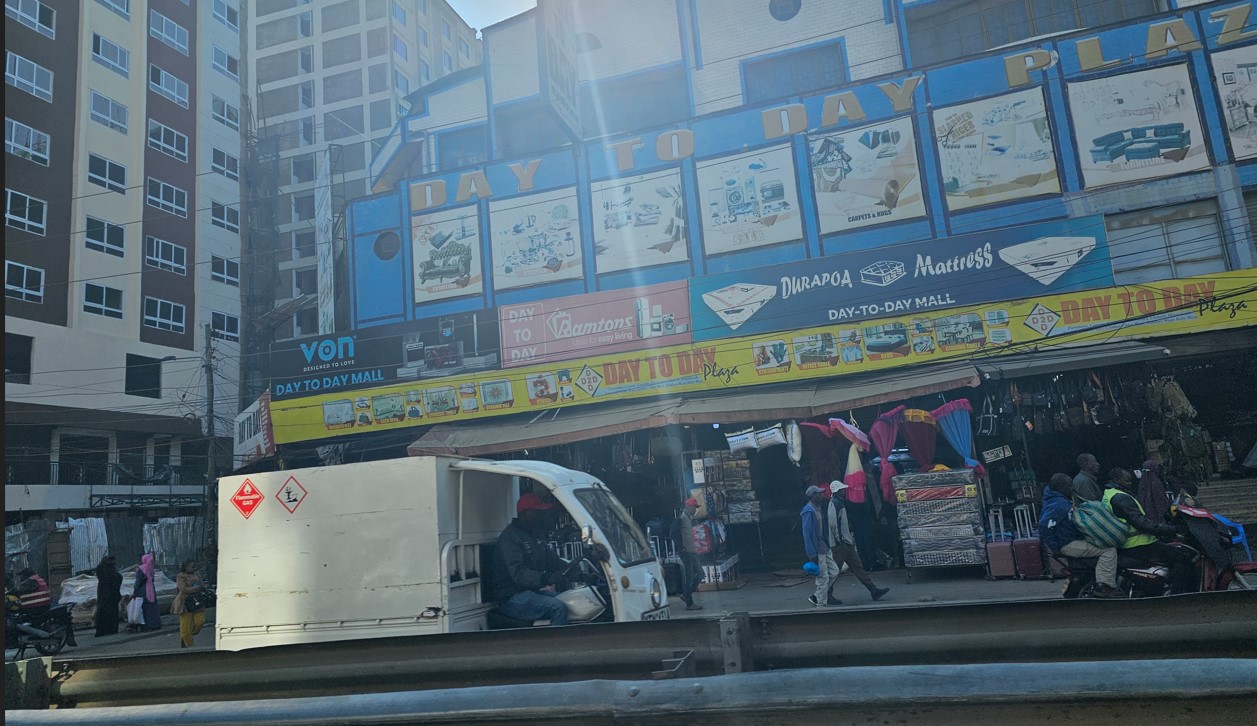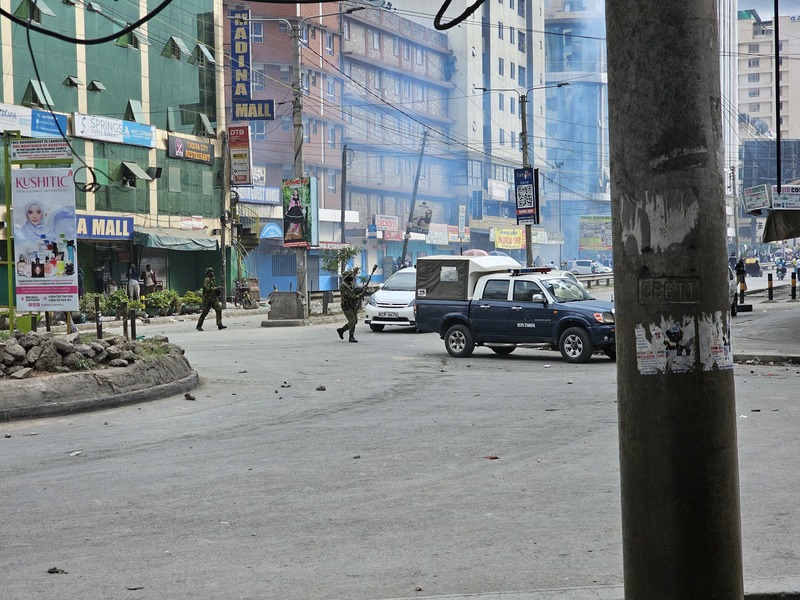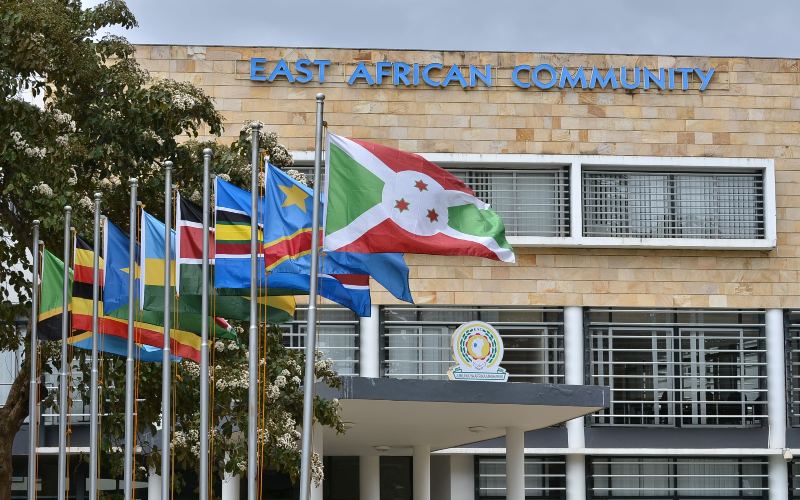Eastleigh businesses staring at losses from uncovered risks as many shun insurance

On average, out of every five businesses we surveyed, about four said they do not see the need to insure their businesses against specific losses
Eastleigh in Kenya’s capital, Nairobi, has over the years transformed from a dusty estate to a business centre, attracting people from across the East African region.
There are more shopping malls in Eastleigh than anywhere else in the country, with its 24-hour economy comprising multi-billion-shilling wholesale and retail enterprises.
More To Read
- Nairobi County, Eastleigh Business Association agree on food safety and restaurant licensing
- Safaricom partners with Eastleigh business community to enhance network and internet connectivity
- Eastleigh traders decry soaring taxes during meeting with KRA officials
- Eastleigh business leaders decry increased import duties during meeting with Trade PS
- Hawkers celebrate fresh opportunities in Eastleigh’s Five Street
- Eastleigh local traders raise alarm over influx of Chinese retailers
Although there is no exact record of the number of shopping malls in Eastleigh, reports place the number at over 50, with the recently opened Business Bay Square (BBS) Mall said to be the largest in East Africa
The wholesale and retail traders sell clothes, electronics, fabrics, and other items that reach customers across East and Central Africa.
While one cannot give an exact figure to the money that changes hands here daily, the Eastleigh Business Community earlier put it at about Sh2 billion.
Former Nairobi Governor Mike Sonko said the business centre is the country’s second economic hub after the Nairobi central business district (CBD), based on the zoning system, after overtaking Westlands. In terms of trade volumes, he said Eastleigh is giving the city centre a run for its money, depicting the crucial economic output it offers the country.
Despite the critical role the businesses in Eastleigh play, it is shocking that the majority of them are not fully guaranteed security against unexpected eventualities.

Crisis preparedness
A spot check by The Eastleigh Voice, triggered by the business losses resulting from destruction and looting during the anti-Finance Bill protest, sought to examine the preparedness of the Eastleigh businesses in case of such occurrences.
During the protests on June 25, several businesses in the Nairobi CBD and other parts of the country were broken into and goods worth millions of shillings stolen, while some premises were burned.
Dekh Hassan, who runs an electronics business on Ronald Ngala Street, told The Eastleigh Voice that he could be counting a loss worth millions of shillings. Unfortunately, he had not insured his business.
The lack of insurance coverage for the business also means several employees will have to wait for an indefinite period before going back to work as their employers look for ways to revive their businesses.
A survey in Eastleigh has revealed that a majority of traders have not insured their businesses against losses, putting them at risk of incurring huge losses in case disaster strikes.
At the Garissa market, for instance, the owners of the shops that The Eastleigh Voice visited confessed to not having any form of insurance.
On average, out of every five businesses we surveyed, about four said they do not see the need to insure their businesses against specific risks such as vandalism and fire. If this survey is anything to go by, then it means about 80 per cent of the businesses in Eastleigh are not insured against certain risks.
Abdi Vata, who sells bags on Mohamed Yusuf Haji Avenue, said with thin profit margins, it becomes hard to prioritise things like insurance, which cuts the cost of running the business.
“Most businesses run by Somalis are owned by more than one person, and in case the business goes down as a result of any unprecedented occurrence, they will put their resources together and start the business again with ease,” Abdi said.
He said that with many having started family businesses where they pool resources, the feeling of communal security makes them not see the need to insure them. For them, insurance is an added cost that they are willing to forego.
 Shoppers are pictured on First Avenue in Eastleigh, Nairobi, on December 4, 2023. (Photo: Abdirahman Khalif/EV)
Shoppers are pictured on First Avenue in Eastleigh, Nairobi, on December 4, 2023. (Photo: Abdirahman Khalif/EV)
Lack of knowledge
At the same time, many of the traders lack knowledge about the different insurance products that they could tap into to secure their businesses.
Over time, the country’s insurance industry has continued to be characterised by low penetration levels, standing at about 2.3 per cent, due to a multiplicity of factors such as lack of access to insurance, inability to pay for insurance, existing distribution channels, adverse selection, and information asymmetry, among others.
Last year, some insurance agents under the Association of Kenya Professional Insurance Agents, noted that the increased taxes over some time had adversely affected the penetration rate.
“Kenyans have been pushed to the wall by the economic situation, such that the first thing they strike off their list of priorities is insurance,” said Clifford Ochieng, the association’s chairman.
He added that the country’s penetration rate has been below the global average for the longest, indicating a large uninsured customer base.
At 2.3 per cent, Kenya has the third lowest insurance penetration rate in sub-Saharan Africa, with South Africa leading at 17 per cent.
“This is because most of Kenya’s population perceives insurance as a 'nice-to-have, easy to discard' product rather than one that is essential,” Ochieng said.
Nevertheless, the sector's end-of-year report by the Insurance Regulatory Authority (IRA) shows the speed of uptake was constrained by high inflation, which saw families and businesses prioritise the basic requirements.
Concerning unawareness about insurance products, as is the case with a majority of enterprises in Eastleigh, IRA is on record challenging insurance companies in the country to grow their businesses through sensitisation, to add to their contribution to the economy.
Speaking at a forum in November last year, IRA Commissioner of Insurance Godfrey Kiptum said that despite Kenya being among the top three insurance markets in Africa, the insurance companies are not contributing enough to the country’s economy.
Kenya’s insurance market has about Sh310 billion in premiums, which is a small fraction of the economy, compared to South Africa, where the insurance market contributes more than 60 per cent to its economy.
“We pride ourselves on the fact that Kenya is the third biggest insurance market in Africa, but that is not enough. In Africa, with our premiums of Sh312 billion or thereabouts, we contribute less than 5 per cent to the economy. South Africa contributed 65 per cent in 2022 and 68 per cent the previous year,” Kiptum said.
Top Stories Today













































